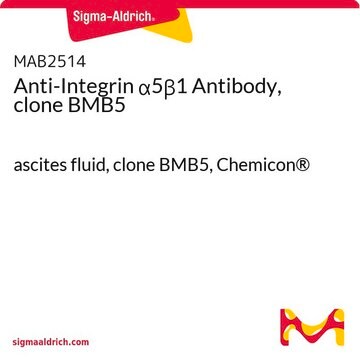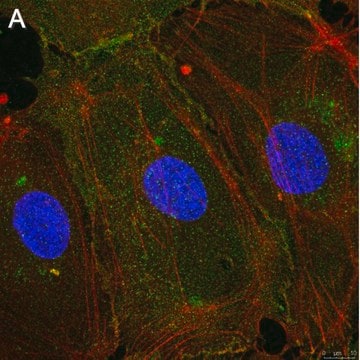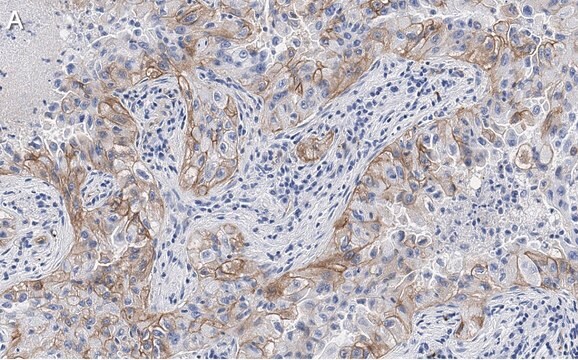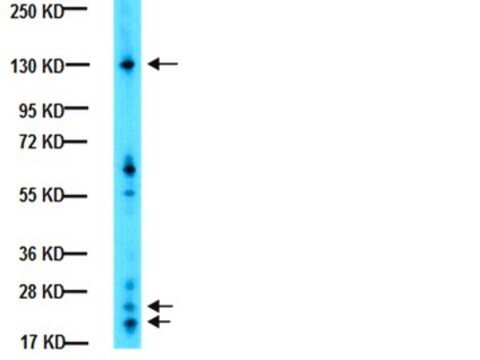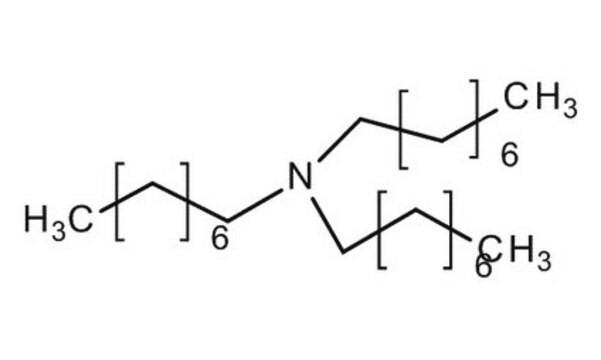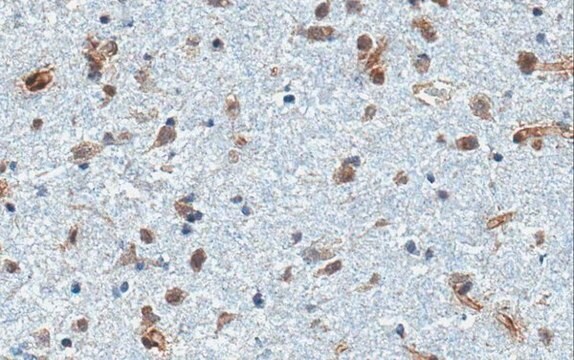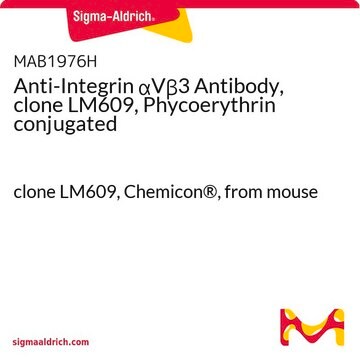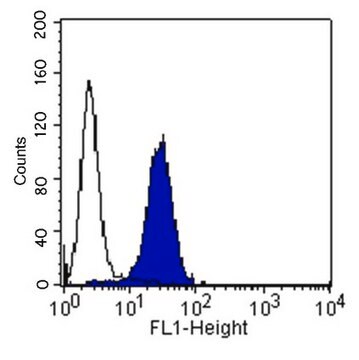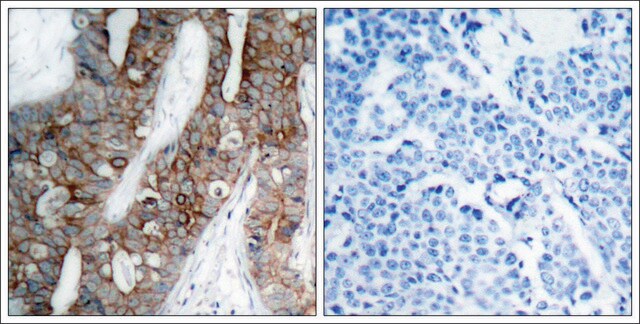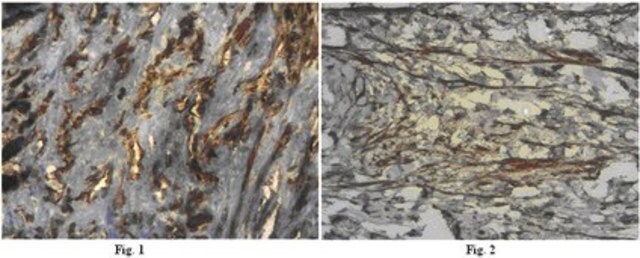MAB1976
Anti-Integrin αVβ3 Antibody
CHEMICON®, mouse monoclonal, LM609
Synonym(s):
Vitronectin Receptor, CD51/CD61
About This Item
Recommended Products
Product Name
Anti-Integrin αVβ3 Antibody, clone LM609, clone LM609, Chemicon®, from mouse
biological source
mouse
Quality Level
antibody form
affinity purified immunoglobulin
antibody product type
primary antibodies
clone
LM609, monoclonal
species reactivity
chicken, canine, rabbit, avian, monkey, human, pig, bovine
should not react with
mouse, rat
manufacturer/tradename
Chemicon®
technique(s)
flow cytometry: suitable
immunofluorescence: suitable
immunohistochemistry: suitable
immunoprecipitation (IP): suitable
General description
Specificity
Immunogen
Application
Immunoprecipitation: specifically immunoprecipitates the integrin alphaVbeta3 complex which, when resolved by SDS-PAGE under reducing conditions, results in an approximately 130 kDa band corresponding to the alphaV subunit and a 105 kDa band corresponding to the beta3 subunit (Cheresh, 1987).
Immunofluorescence: 5-10 μg/mL for staining of bFGF-treated 6 mm cryosections of chick chorioallantoic membrane fixed with acetone (Brooks, 1994). LM609 is also effective on 4% paraformaldehyde fixed, frozen tissues and cells. However it is not effective for immunohistochemical staining of paraffin-embedded tissue sections.
Inhibits adhesion of cells to vitronectin coated surfaces at 10-25 μg/mL.
Optimal working dilutions and protocols must be determined by end user.
Cell Structure
Integrins
Target description
Physical form
Storage and Stability
Analysis Note
Positive Control: Human myeloma cell lines M21 and MoαV (Chen, 1995).
Negative Control: Mo cells (this cell line was derived from M21 but does not express integrin αV
Chen, 1995)
Other Notes
Legal Information
Disclaimer
Not finding the right product?
Try our Product Selector Tool.
recommended
Storage Class
10 - Combustible liquids
wgk_germany
WGK 2
Certificates of Analysis (COA)
Search for Certificates of Analysis (COA) by entering the products Lot/Batch Number. Lot and Batch Numbers can be found on a product’s label following the words ‘Lot’ or ‘Batch’.
Already Own This Product?
Find documentation for the products that you have recently purchased in the Document Library.
Customers Also Viewed
Our team of scientists has experience in all areas of research including Life Science, Material Science, Chemical Synthesis, Chromatography, Analytical and many others.
Contact Technical Service
